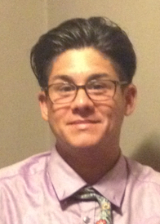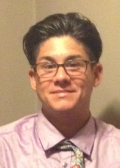- Toolkits
- Are You Ready to Talk?
- Beyond the Line
- Blocking Gender Bias
- Edgy Veggies
- First-Gen Ascend
- Fishbowl Discussions
- Measuring Mobility
- Peaceful Politics
- Plot the Me You Want to Be
- RaceWorks
- Rethinking Stress
- Space Reface
- Team Up Against Prejudice
- United States of Immigrants
- Kit Companion: Map Your Identities
- Kit Companion: LARA
- Collections
- Action Areas
- About

Techniques for Tense Talks: Q&A with Danny Alvarez
Stories From the Field
Techniques for Tense Talks: Q&A with Danny Alvarez
 Danny Alvarez, a staff member with Stanford University’s Diversity and First-Gen Office and co-author of Are You Ready to Talk?, discusses how and why we made this toolkit.
Danny Alvarez, a staff member with Stanford University’s Diversity and First-Gen Office and co-author of Are You Ready to Talk?, discusses how and why we made this toolkit.
SPARQ: What inspired you to create this toolkit?
Alvarez: There is so much hesitation and fear about having honest conversations with people who are different from us. We wanted to make a toolkit that would make people feel more comfortable and confident having difficult conversations themselves or facilitating conversations among others. And so this toolkit can be used by itself or in preparation for conducting Beyond the Line or Fishbowl Discussions[two group activities that explore diversity].
SPARQ: How will this toolkit help create a more equitable world?
Alvarez: The spaces that we are in — professional environments, schools, community events, and more — continue to increase in diversity, and we all need to be able to talk to each other across differences. The more prepared people feel for difficult conversations, the more they will have these talks. That will help them break down differences and create more understanding and respect for people who are different.
SPARQ: Who and what organizations can benefit most from this toolkit?
Alvarez: People who are planning on facilitating a difficult conversation — whether for a school or other organization — that will explore social identities, social dynamics, or social justice. Also, people who understand the importance of examining themselves. And people who are nervous about conversations with those who are different and want some help.
SPARQ: What was difficult about making this toolkit? Why?
Alvarez: We have used many of these exercises in workshops where we can give directions in person. It was tricky to figure out how to format the activities for a website.
SPARQ: How has designing the toolkits changed your perspective on trying to bring about social change?
Alvarez: Designing this toolkit was a nice reminder that there are concrete techniques that can help you get better at engaging with others. It can be easy to forget.


